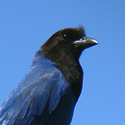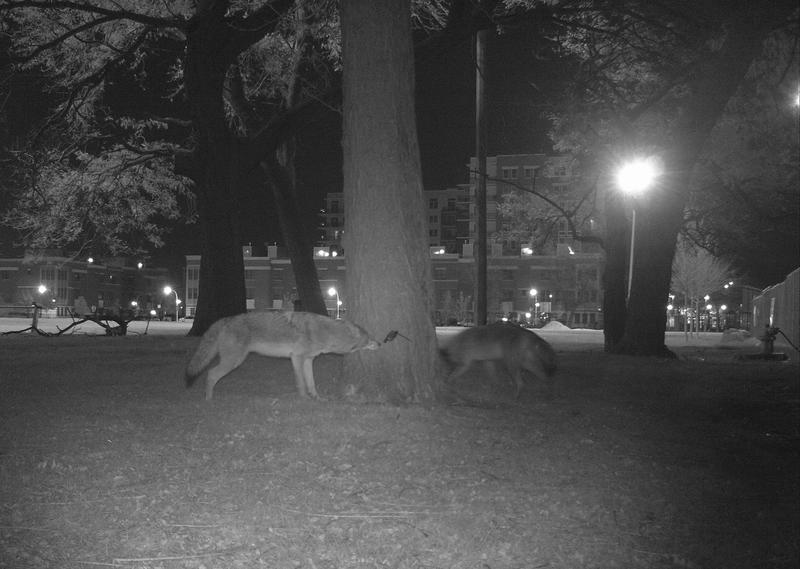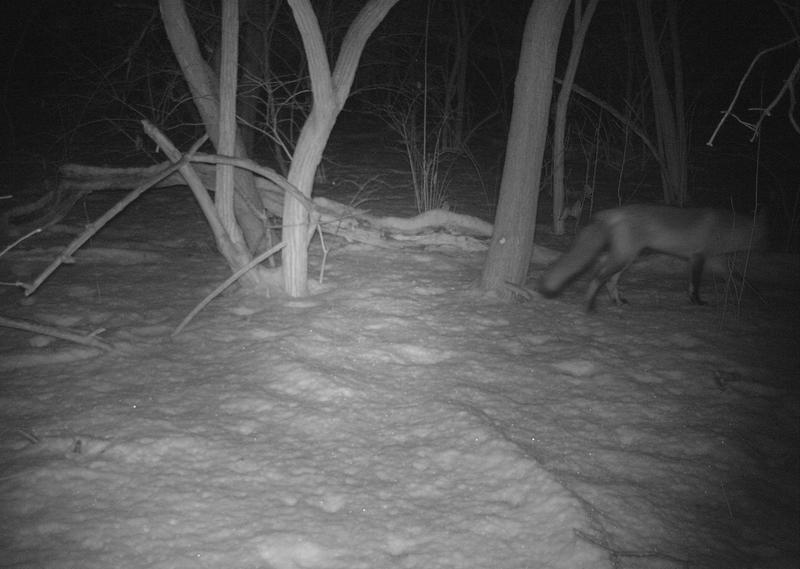Coyote vs Fox
-
 by
AzureJay
by
AzureJay
One of the things I have been learning the past few days as I go through images and discuss objects is that I am less capable of telling a fox from a coyote (especially in the dark!) than I thought I would be.
One problem I've found is that fox tails, and coyote tails, look very similar - they have a highly similar shape, bushyness, and both tend to have the characteristic black snip. EX:


One thing I am seeing a difference of (also noticeable in the above photos) is that foxes tend to have darker legs (aka 'black socks') while coyotes are always lighter in the belly and leg.
I thought size would be a clear indicator, but not only do I seem to be wrong in that so far - but coyote pups are definitely 'round the size of foxes!
What other tips do you all have for discerning foxes from coyotes? They're some of my favorites to find but boy are they stumping me!
Posted
-
 by
WillowSkye
by
WillowSkye
They stump me too 😃 But what I've learned so far is that coyotes love to roll around, especially in the leaves of fall. Haven't seen a fox rolling around yet ....
Posted
-
 by
DZM
admin
in response to AzureJay's comment.
by
DZM
admin
in response to AzureJay's comment.
Oh, I am so glad you asked. 😃
Because the science team has already done some excellent blogging about this exact topic. Does that help ya out?
By the way, my favorite way to tell is that coyote tails are very pointy at the end, while fox tails are more ovular.
Welcome to the site, by the way! Not sure I've seen you around before, but we're super happy to have you!
Posted
-
 by
AzureJay
in response to DZM's comment.
by
AzureJay
in response to DZM's comment.
Oh hey, I hadn't looked that far back in the blog. That is majorly helpful! And so is the tip about the end of the tails. =)
I am new! I just started Zooniversing a few days ago and picked up this project as my primary "go to" to work on as I have a chance. I've never been to Chicago (I'm down in Texas, and have lived in Utah and California) but I love wildlife and especially like seeing studies on urban wildlife. I think this doubly caught my eye because the area I live in now is very "harmonized" with its urban wildlife - we have all sorts of species and for the most part, the humans accept they share their space with dozens of species and the critters likewise get along alright alongside us. (Three reptile species, one amphibian species, nine bird species, several large insect species, and one mammal species commonly + visibly share my surburban house/property, for instance - and if I expand out to the neighborhood block I can add MANY more species to that!). So it's neat to see critters sharing space with humans, and how they do so.
Posted
-
 by
DZM
admin
by
DZM
admin
Well, I'm really glad to have you! Tell your friends! This project needs more love. 😃
Posted
-
 by
escholzia
by
escholzia
In my area (California), the coyotes have moved out of the hills into my neighborhood recently and are chowing down on cats 😦 At least one a day for the past few weeks. I appreciate wildlife, but it requires a major change in thinking on how coyotes can coexist with pets.
Posted
-
 by
mason_UWI
scientist
by
mason_UWI
scientist
Thanks for joining in AzureJay! Species living in urban environments can bring a lot of benefits to people, however there is always the possibly for conflict to occur. The trick for us to figure out is that we are not increasing the chances of human-wildlife conflict when a city makes an effort to become more green (i.e. if you double the green space you should not double the conflict). Coyotes are definitely a species that comes to mind with this, as they have some of the most direct interactions with our own pets. Some of our research out of Colorado (where Seth got his PhD), actually indicates that conflicts with coyotes actually decreases in areas where there are prairie dog colonies (a natural food source for them).
Anyways, we are on the chat section pretty regularly, so if you have any questions for the science team you know where to find us!
Posted